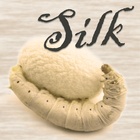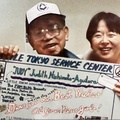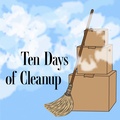Jou Schnell looked out her window of her small four-room, wood-framed house on Gold Hill. Through the walnut trees, dappled light streamed onto the dew-covered grass, a common sight during the last days of summer in California.
Her nursemaid, Okei, was late. She was just a child herself. Only about seventeen. Jou remembered when she herself was seventeen, seven years ago, when the Tokugawa shogunate still held power over her childhood home in Japan. The magnificent Tsuruga Castle in Wakamatsu was still standing in its full magnificence at the time, a beacon for all samurai still loyal to the shogunate.
All her physical needs were taken care of. But there had been a downside to her life in Aizu. She didn’t have much of a say in her future. So when she was told that it had been arranged for her to marry a gaijin, John Henry Schnell, she couldn’t refuse.
She had never seen a white man up close before. Forces against the shogunate referred to them as barbarians, and to be honest, Jou was first afraid to be in the company of John Henry. He was from Europe, a Prussian. His brother, Edward, also had a Japanese wife.
When Jou gave birth to their first child in Japan, she had wondered what she would look like as she grew older. Edward’s daughter was already seven; would the cousins resemble each other? Would the baby’s light hair eventually turn black like the color of nori? Would her brown eyes change into blue-green eyes like her father’s?
Jou had wanted a Japanese name for her daughter. A name with a kanji that defined her as pure and beautiful. John Henry, on the other hand, had insisted on a Christian name.
“Frances,” her husband had said. “We will call her Frances.” And as always, John Henry got what he wanted.
Her husband was in the business of guns, specifically in the service of his benefactor, Matsudaira. The samurai of the region, in particular John Henry’s benefactor, needed the guns as much as they needed their swords, maybe more so with civil war tearing her home in Tōhoku apart. Younger samurai supported Emperor Meiji and the imperial family and had sought the destruction of one of the last holdouts, Tsuruga Castle. Wakamatsu had not been able to withstand their enemy’s firepower. All had been lost. Teenage boys, probably Okei’s age, committing seppuku in the ruins. It had been almost too much for Jou to take.
* * * * *
In May 1869, the three members of the Schnell family rode on the SS China, to a place called California, Kashu, with a handful of other Japanese people.
In California, everyone called them Chinese, Celestials, Chinamen. Jou saw many Chinese immigrants in San Francisco, where they landed. They were mostly men with long queues and dark skin, probably from working out in the sun.
Jou didn’t want to become a peasant woman. She had too much pride for that.
In the local American newspapers, reporters had described Jou as having “refined delicacy, very pretty forms and features, and a very winning address.”
When one of the locals of Gold Hill translated the article for Jou, she covered her mouth in mock embarrassment. But secretly she was pleased. If she was expelled from her home country, at least she could be seen as the queen of this new place.
John Henry didn’t waste any time when they reached Coloma. They had heard that it once had been “gold mountain,” but based on the abandoned prospecting sluices and cabins they passed on their way to Gold Hill, things had changed. Undeterred, in June 1869, a month after their arrival, John Henry paid $5,000 to buy 160 acres in the Gold Hill District of Coloma from a farmer named Charles Graner.
As the colony’s leader, John Henry was first in charge of getting the housing built and planting tea seeds around the barn.
Jou’s official job, on the other hand, was to “keep house.”
Back in Japan, long ago, she would have had help, including advice from all the female relatives in her life. But after a few months came that familiar unease in her stomach and then her menstruation ceased. She was pregnant again, but this time in a completely foreign land.
The other women in the colony acted thrilled about the new addition, but Jou recognized the underlying fear and apprehension in their eyes. How could she bring another baby into this uncertain situation?
Luckily, Gold Hill now had a doctor, who was able to use herbs and other natural medicines to sustain the colonists. In spring of 1870, Jou gave birth to her second daughter.
“This is the first Japanese child to be born in America,” the doctor announced, making Jou puff up with pride.
When John Henry announced that this second daughter was to be named Mary, Jou did not protest. She knew that was the name of the Christian God’s mother. Perhaps the name would portend a new future for all of them.
* * * * *
To raise two little girls in a strange land proved to be a challenge. Sometimes at night, while John Henry snored or gnashed his teeth in stress, Jou stayed up, alert to hearing the cries of her daughters. As a nursemaid, Okei was helpful but she was a child herself without any first-hand knowledge of having children. Sometimes Jou would worry about her because she seemed so frail. At times, Okei’s body just froze in position, perhaps from great homesickness, and Jou had to call out her name several times to get her attention.
The teenager didn’t share too many details of her life and Jou wondered if there was some kind of scandal and trauma in her family. Well, for any Japanese to be here on Gold Hill, there had to be a tragic story.
John Henry’s life, in fact, had been threatened after Tsuruga Castle had been taken. His benefactor, Matsudaira, had been sentenced to death. It had been a miracle that they were able to make their escape on the SS China with 50,000 three-year-old mulberry plants and six million seeds of tea plants. Up to this time, no Japanese were officially allowed to leave the archipelago.
Other mothers with young children here on Gold Hill kept their respectful distance from the Schnells. John Henry had made many promises. The Wakamatsu Colony was to have hundreds of Japanese working here by this time. Instead, they had only dozens of workers, wilted mulberry trees, and stunted tea plants. Schnell had heard that Matsudaira’s life had been spared back in Japan and often spoke that financial succor was on its way.
As Mary began to cry in her bassinet, Jou picked her up and began to unbutton her shirt to nurse her. Frances, meanwhile, shrieked for her mother’s attention. Upon the arrival of her younger sister, Frances had begun to revert in age, babbling and sucking her thumb.
As Mary latched on, Jou covered her bare breast with cheesecloth and looked out the window. She sighed in relief. Okei had arrived to help.
(Author’s Note: The nonfiction sources used for this fictional creation included Daniel A. Métraux’s The Wakamatsu Tea and Silk Colony Farm and the Creation of Japanese America, Discover Nikkei articles, and Gary Noy’s Sierra Stories: Tales of Dreamers, Schemers, Bigots, and Rogues.)
© 2019 Naomi Hirahara





